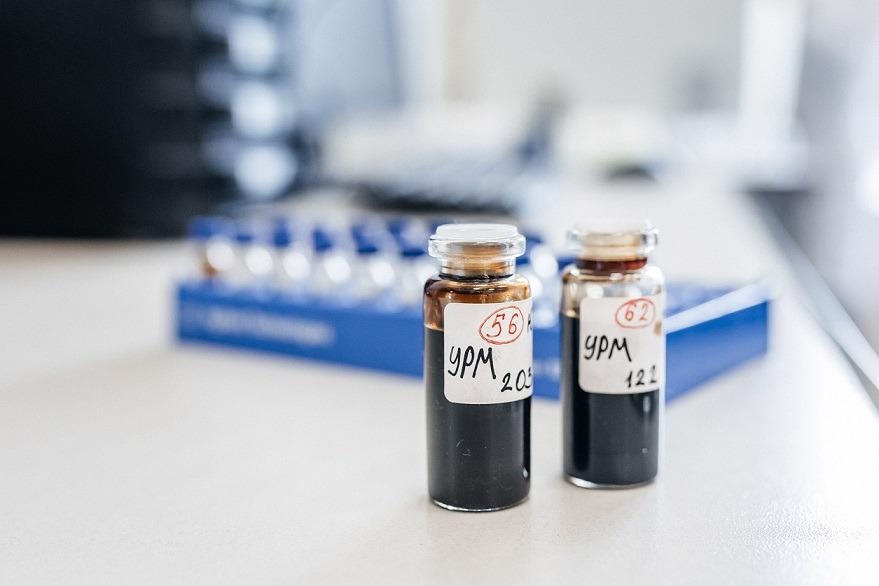Chemists from Tomsk Polytechnic University (TPU) have created a novel material, which effectively and efficiently decontaminates water from petrochemicals.

Image Credit: Tomsk Polytechnic University.
The new material is designed using polymer biomedical waste: hospital bedsheets and surgical masks. The material engineered by the researchers has oleophilic and hydrophobic properties, as well as low material cost and a high oil adsorption capacity. The research findings have been reported in the Journal of Environmental Chemical (IF: 5,909; Q1).
According to the researchers, the fibrous structure of disposable bed sheets and surgical masks facilitates opportunities for their recycling for oil spill clean-up.
Yet, pristine polypropylene (PP) does not offer high adsorption capacity and functionality for selective capturing of oils. Therefore, new approaches to enhance PP properties for water purification from pollutants was needed.
The TPU team under the guidance of Pavel Postnikov, Associate Professor of the TPU Research School of Chemistry and Applied Biomedical Sciences, discovered such a technique: they positioned a metal-organic framework (MOF) on PP using a basic chemical method. Consequently, the new material of superhydrophobic oleophilic fabric was produced.
Metal-organic frameworks (MOFs) are porous organic compounds consisting of organic ligands and metal ions. We used zinc and imidazole derivatives as a ligand. Due to the well-ordered structure, frameworks are nanoporous and possess large specific surface area, i.e. they can absorb a very large amount of substance: oils and oil spills.
Olga Guselnikova, Research Fellow of Research School of Chemistry and Applied Biomedical Sciences, Tomsk Polytechnic University
“Crucially, we used fluorine-free ligands while hydrophobic properties were given due to the architecture of the MOF. Despite the fact that fluorinated ligands are superhydrophobic, the preparation and development of frameworks based on such ligands are quite expensive and time-consuming. Moreover, these ligands are not very good in terms of further recycling and exhibit toxic properties since released into water,” Guselnikova added.
Guselnikova is one of the authors of the study.
The research was carried out using a large variety of oils, including model samples. In the experiments that were done, the researchers replicated an oil spill: they mixed diesel, rust, dyes and other solid pollutants. The superhydrophobic oleophilic fabric exhibited that it was capable of efficiently eliminating contaminants. Furthermore, the experiments demonstrated that it is mechanically robust and resistant to UV radiation.
In the course of fundamental research, we obtained a prototype of the oleophilic fabric up to 65 square centimeters in size. Such a sample is a prototype for a potential application of the material: the fabric is spread on top of an oil spill and a minute later it is removed mechanically, taking all oil pollution with it and leaving clean water.
Pavel Postnikov, Study Lead and Associate Professor Research School of Chemistry and Applied Biomedical Sciences, Tomsk Polytechnic University
Within the shared Kolmogorov Russian-French project, the researchers along with their French colleagues from Lille University of Science and Technology (France) are beginning to explore the functional processing of polymer waste to form sorbents and materials for the energy sector.
Journal Reference:
Guselnikova, O., et al. (2021) Polymer waste surgical masks decorated by superhydrophobic metal-organic frameworks towards oil spills clean-up. Journal of Environmental Chemical. doi.org/10.1016/j.jece.2021.107105.